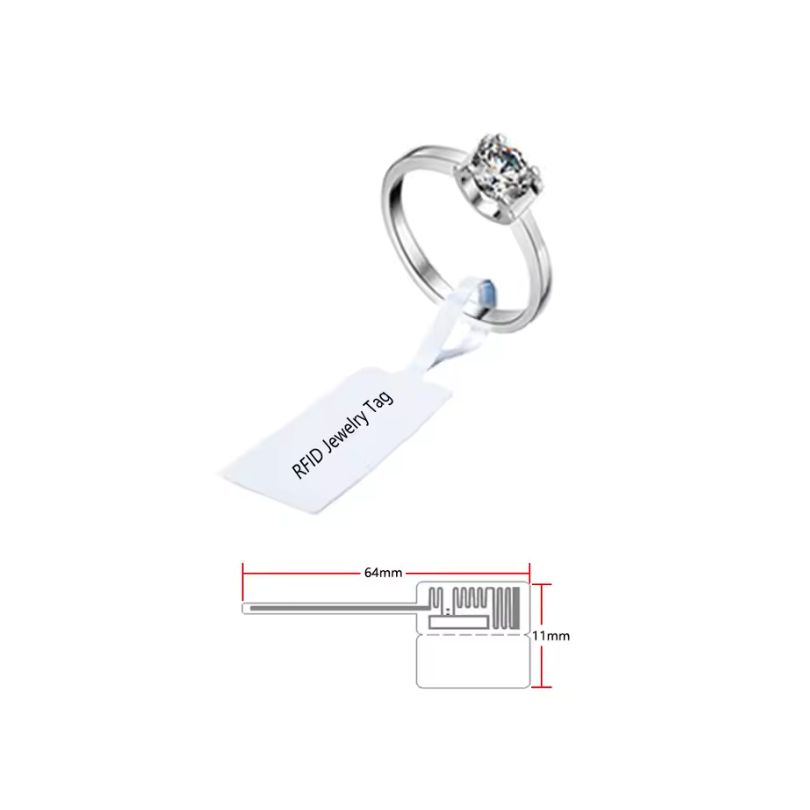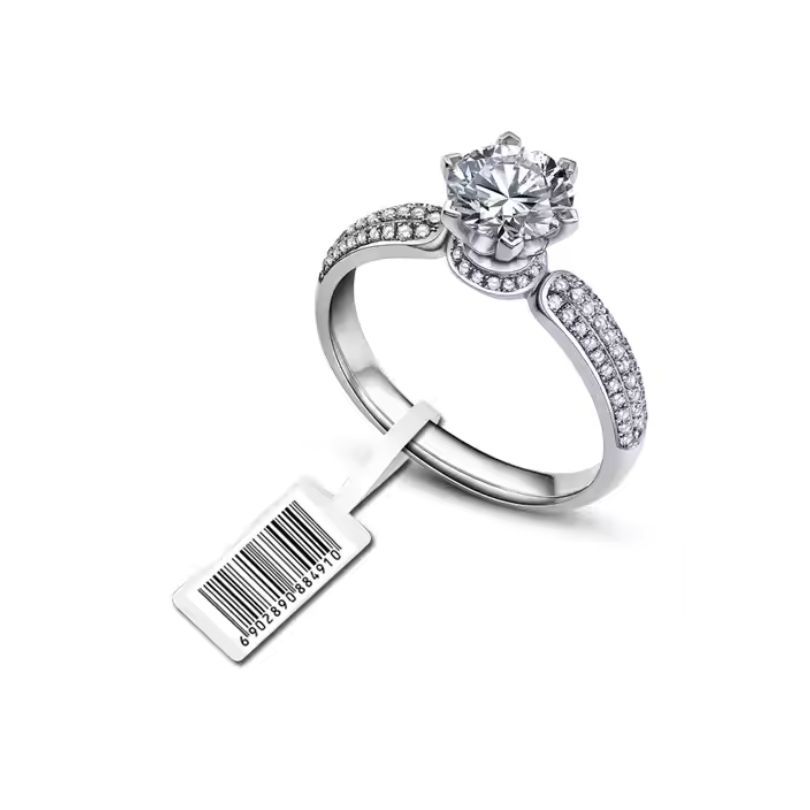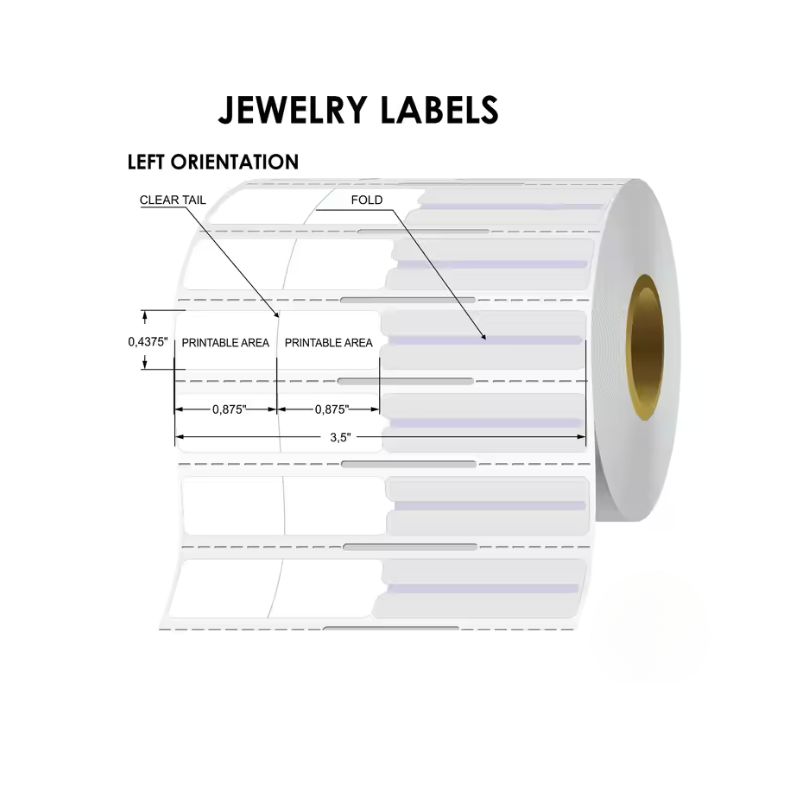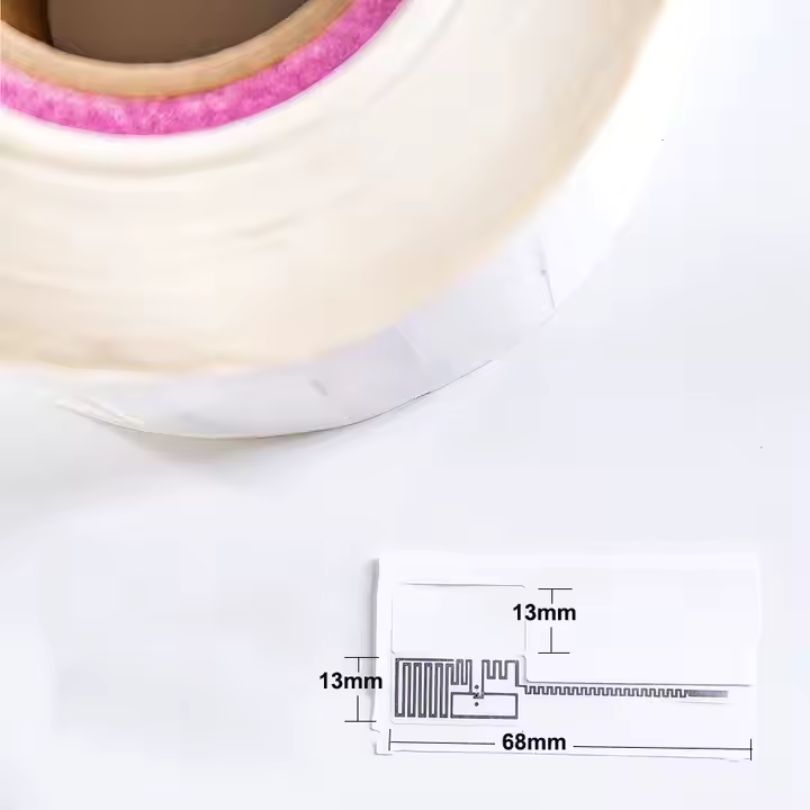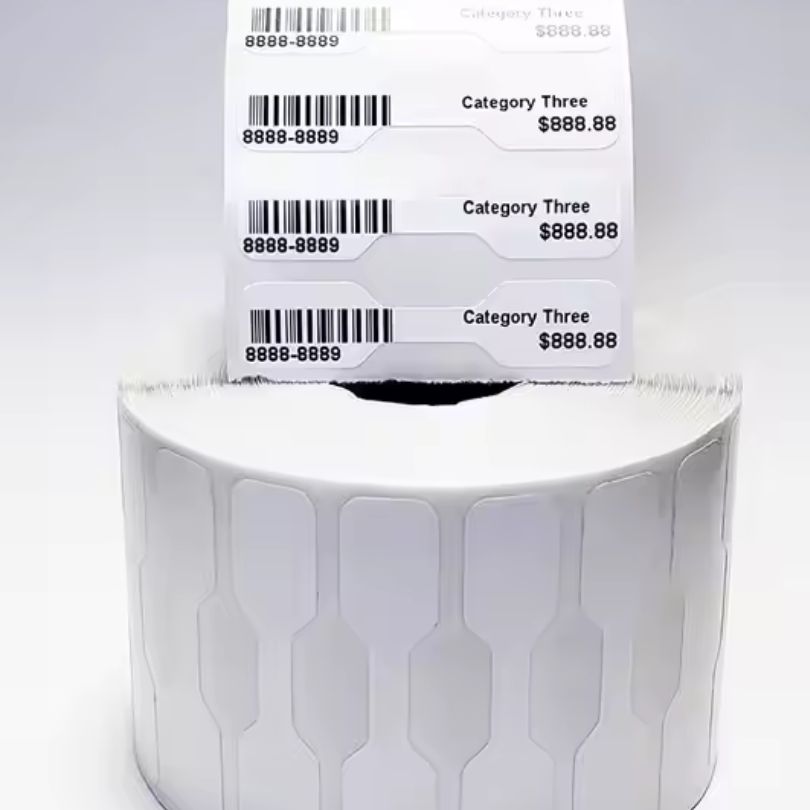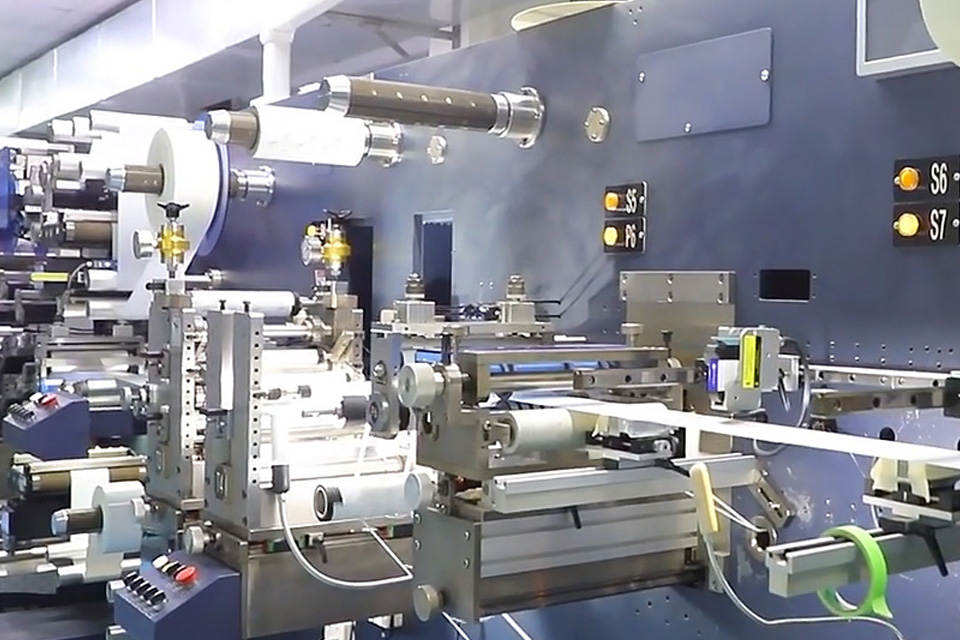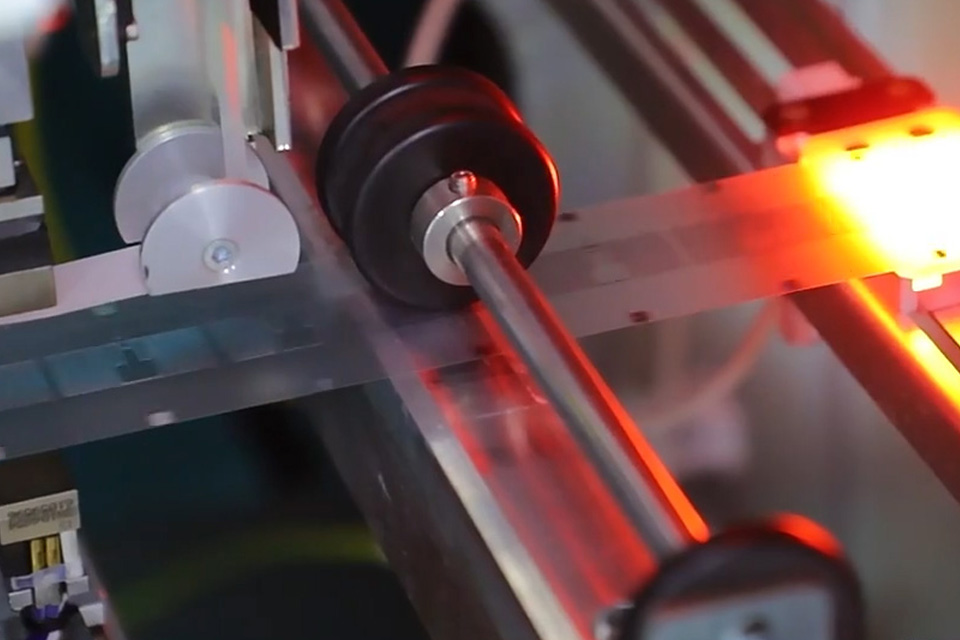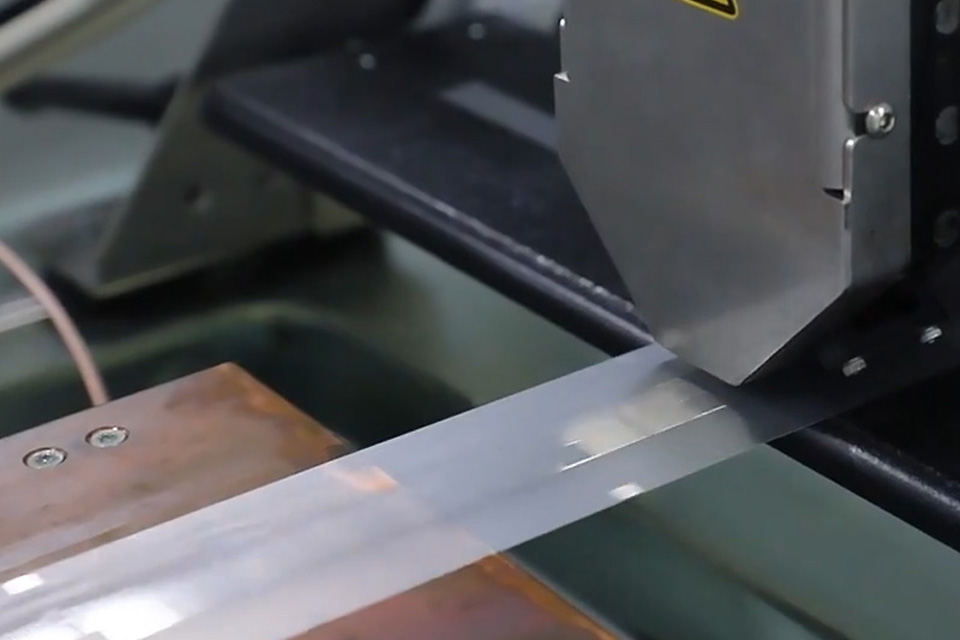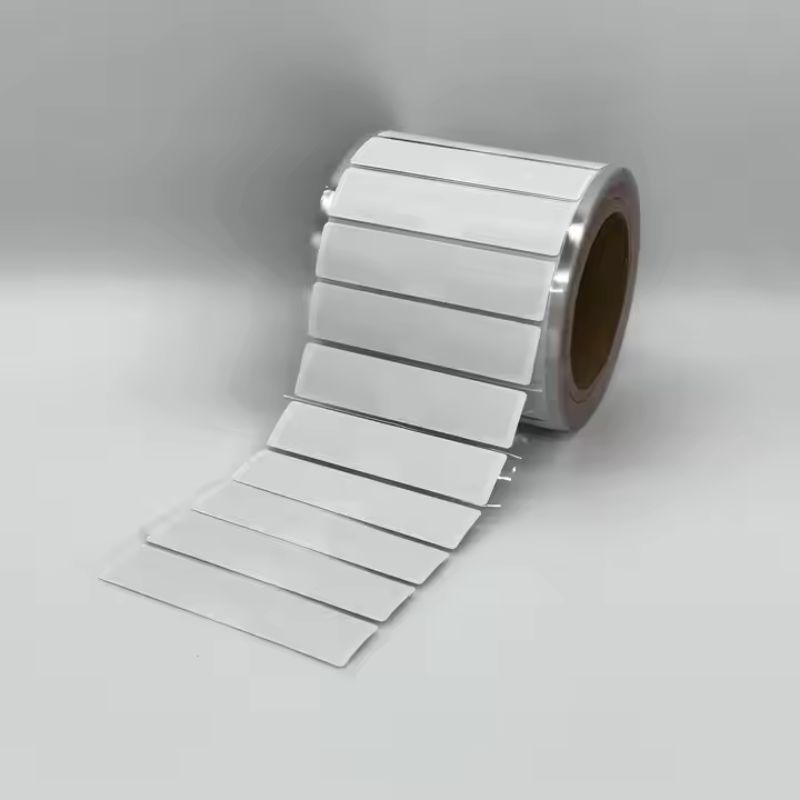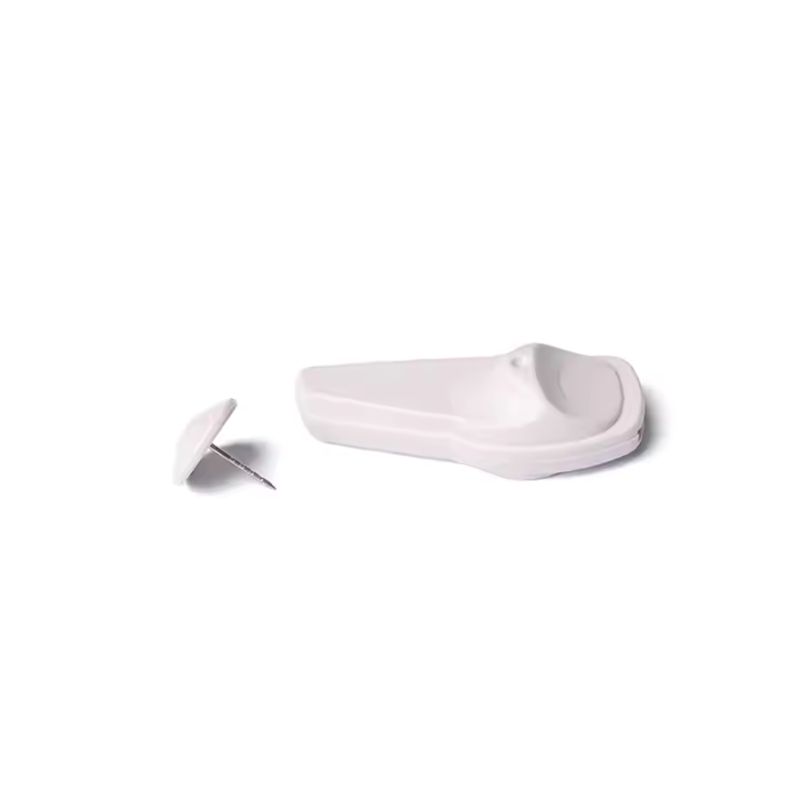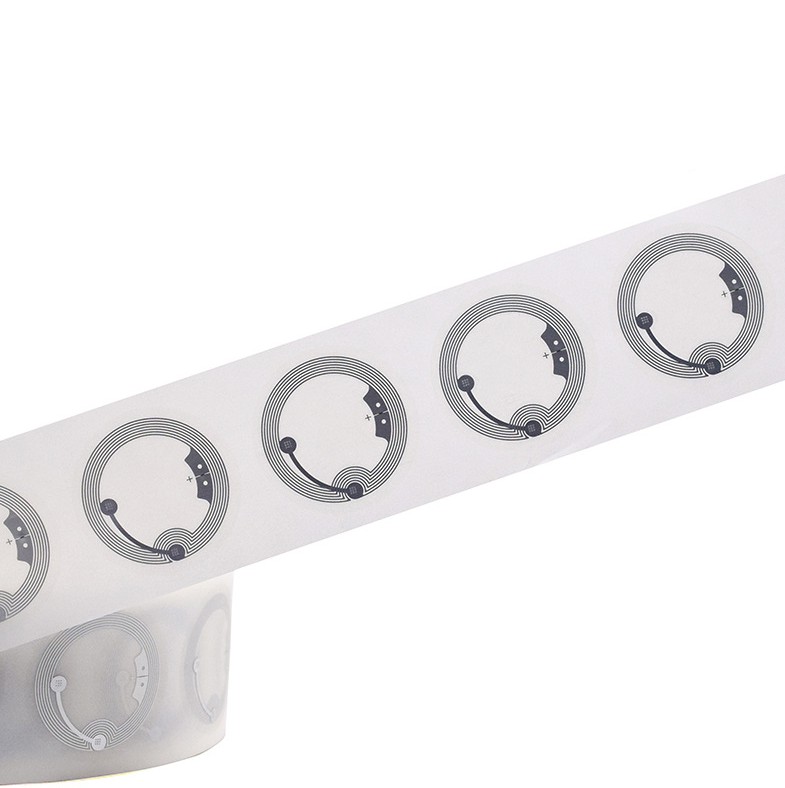
Security Tracking UHF RFID Jewelry Tag for Jewelry Shop
UHF RFID Jewelry Tags: Precision Tracking for Modern Jewelry Inventory Management
Transform your jewelry business with our ISO-certified UHF RFID Jewelry Tag – the smart solution for real-time inventory tracking, loss prevention, and supply chain optimization.
Designed for jewelers and retailers seeking high-temperature-resistant, discreet, and high-memory tags, these Impinj-powered labels ensure 99.9% accuracy in managing rings, necklaces, and luxury watches.
Why UHF RFID Jewelry Tags Revolutionize Inventory Management
UHF RFID Jewelry Tag solve critical pain points in the jewelry industry, where manual tracking of small items leads to errors, theft, and stockouts. Unlike traditional barcodes or NFC tags, our 860-960 MHz UHF RFID Jewelry Tag:
- Scan 200+ items/sec (vs. 1-2 items/sec manually)
- Store encrypted data: Serial numbers, gem certifications, warranty details
- Withstand harsh environments: Solder-resistant (up to 302°F/150°C) and chemical-proof
Proven Results:
70% faster stocktakes for a Tiffany & Co. supplier
45% reduction in shrinkage (theft/loss) at a Dubai gold souk
ISO 15693/18000-63 compliant for global jewelry exports
Seamless Integration and Streamlined Operations: Adopting RFID Technology for Jewelry
Our UHF RFID Jewelry Tag is designed to integrate your existing business processes seamlessly. These small RFID labels and tags make it easy to track jewelry. They are typically used with a handheld or fixed RFID reader. We offer comprehensive support and training to help you get up and running quickly and efficiently.
These inlays and tags provide detailed information about each jewelry item. Our RFID tags have a tiny footprint. By implementing RFID technology, you can streamline your supply chain operations, improve accuracy, and reduce operational costs. RFID inlays and tags are available in various delivery formats. With these RFID smart jewelry tags, you can experience management with RFID.
Our RFID experts can help you design the perfect system for your needs. Our UHF RFID Jewelry Tag technology provides real-time, accurate data, enabling you to make informed decisions and optimize your business performance. The RFID inlay is specially designed for jewelry. We can also offer high-temperature RFID jewelry tags. These UHF tags operate in the 860-960 MHz range.
Performance of UHF RFID Jewelry Tag
| Feature | Specification | Jewelry Use Case |
|---|---|---|
| Chip | Impinj Monza R6-P (NTAG 424 DNA optional) | Anti-counterfeiting via AES-256 |
| Frequency | 860-960 MHz UHF | Bulk-read earrings in trays |
| Memory | 512-bit user bank | Store gem origin (Kimberley Process) |
| Size | 68X26mm, 93X14mm | Embed in clasps or engraving areas |
| Materials | Ceramic/PEEK (high-end) or PET (budget) | Hypoallergenic, tarnish-resistant |
Why jewelers choose us:
- Discreet integration: 0.2mm thin inlays fit inside ring bands or watch backs
- Custom branding: Laser-etch logos or QR codes alongside RFID jewelry labels
- Global compliance: Meet EU Conflict Minerals Regulation and FTC Jewelry Guides
Frequently Asked Question
The top questions about UHF RFID Jewelry Tag.
RFID stands for Radio-Frequency Identification, a technology used for identifying people, animals, or objects using radio-frequency communication. This identification is facilitated by RFID tags, or transponders, each equipped with a unique identification number and, in some cases, additional memory.
Passive RFID tags are particularly cost-effective, priced at around €0.05, and do not require an external power source. This affordability and ease of use make them ideal for a wide array of applications, including logistics, inventory management, supply chain operations, automation, marketing, and many other fields.
An RFID tag is a chip or transponder equipped with an antenna that amplifies radio signals. Typically, an RFID tag resembles a label with a visible circuit. When adhesive, it is known as a “wet inlay,” and when non-adhesive, it is called a “dry inlay.”
Active Tags
Active tags come with an internal battery, which is typically used to boost transmission power and extend the reading distance. A common example of active tags is the Bluetooth Beacon.
Passive Tags
Passive tags lack an internal power source and instead use a capacitor. Once charged, this capacitor generates an electromagnetic field that transmits the information stored in the chip. An RFID reader powers and reads the tag in a fraction of a second. Passive tags are the most common type because they do not require a battery.
For a complete overview, there are also semi-active tags. These tags have a power supply that is not used for radio circuits but rather for additional features such as temperature or motion sensors.
RFID tags are read or detected using specialized fixed or mobile devices known as RFID readers. These readers activate the transponder through induction or electromagnetism, prompting it to transmit the stored information. RFID readers can come with either an integrated or an external antenna. Some models allow multiple antennas to be connected to a single reader, enabling the identification of tags at various locations or providing precise coverage of a specific area.
RFID technology operates at various frequencies, each with unique characteristics and governed by ISO standards. Here are the most common RFID frequency categories:
125/134 kHz – RFID LF (Low Frequencies): Governed by the ISO 18000-2 standard, these low-frequency tags have a reading distance of a few centimeters and a low data transmission speed. They are primarily used for animal identification, vending machines, burglar alarms, and access control.
13.56 MHz – RFID HF (High Frequencies): Governed by the ISO 18000-3 standard, these high-frequency tags have a reading distance of up to 10 centimeters and a low to medium data transmission speed. This frequency is also known as NFC (Near Field Communication) and is increasingly popular because many smartphones can act as readers, enabling various innovative applications.
860-960 MHz – RFID UHF (Ultra High Frequencies): Governed by the ISO 18000-6 standard, UHF tags have a reading distance of several meters, even with passive tags. There are variations between UHF readers using US and European standards, but the RAIN standard ensures compatibility with both. UHF tags are widely used for logistics, inventory management, timekeeping, and access control.
5.8 GHz – RFID SHF (Super High Frequencies): Governed by the ISO 18000-5 standard, this is the highest RFID frequency range. It includes only active tags with internal batteries, allowing detection distances of hundreds of meters. A common example of SHF tags is those used for electronic toll collection (ETC).
Low-frequency (LF) readers are typically designed to read one tag at a time, such as the ID of a single livestock ear tag. In contrast, high-frequency (HF) and especially ultra-high frequency (UHF) readers are capable of reading multiple RFID tags simultaneously. This allows them to efficiently scan a stack of tagged books or a pallet of goods as they pass through a reader gate.
The most affordable RFID tags can cost just a few cents and are typically designed as adhesive labels. These low-cost tags are often used in retail or logistics for single-use applications in non-durable settings. The price of RFID tags can vary based on factors such as the chip’s capabilities, memory size, and durability against conditions like heat, impact, freezing, sunlight, and chemicals. Costs can range up to several dollars depending on these factors. Additionally, active tags, which include a battery, are generally more expensive than passive tags.
Hot To Customize RFID Tags
Know the customization process about RFID tags
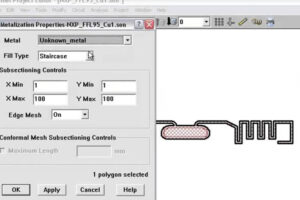
Size & Shape
Send your requirements on size and shapes. Tags are typically designed in simple shapes and sizes to match the internal antenna. However, they can also be customized in various sizes and shapes to best fit the intended application and the asset being tagged. For instance, RFID hang tags can be customized in size, shape, and attachment method to perfectly suit specific applications.
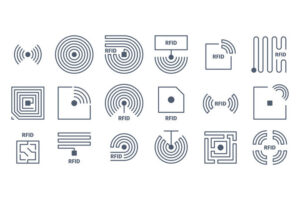
Layout & Chips
In the label format designer, select the layout that matches the type and size of the RFID label you wish to create. Our factory provides a variety of label templates, including RFID-specific options. We also offer a range of RFID chips tailored to meet your specific requirements.
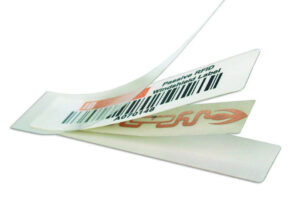
High Customization
Custom tags are designed from the ground up to meet the needs of specific applications, with unique variables for nearly every option listed below. A semi-custom tag typically starts as a standard tag but offers additional customization options, such as custom printing, encoding, or specific backings and attachment methods.
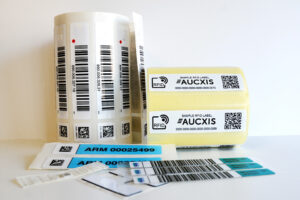
Sample Confirmation
Before proceeding with full-scale production, we offer a sample confirmation process to ensure that the RFID tags meet your exact specifications and application requirements.
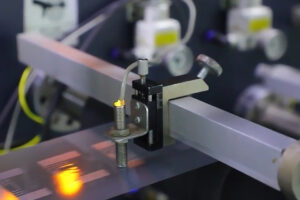
Mass Production
Our mass production process for RFID tags is designed to deliver high-quality, reliable products at scale, ensuring that your business has a steady and consistent supply of RFID solutions tailored to your needs. Leveraging state-of-the-art manufacturing facilities and advanced technology, we maintain efficiency and precision throughout the production cycle.
RFID Tags Application
Use customized RFID tags in different industies.
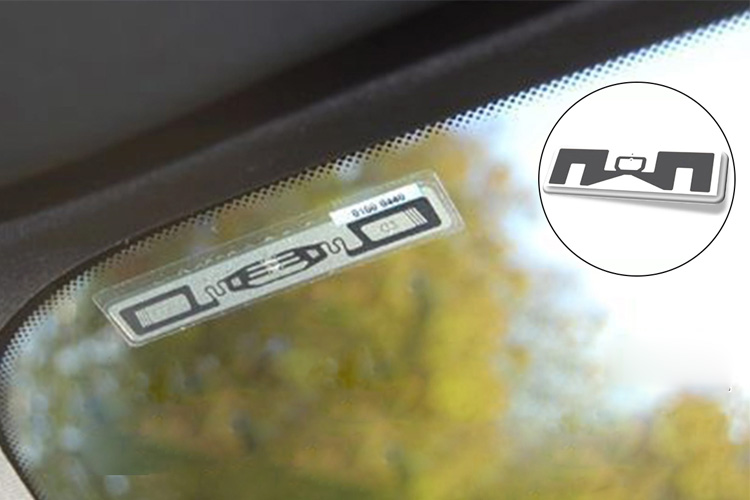
RFID Vehicle Tags
Vehicles with RFID tags enable secure access to gated areas. RFID tags also streamline truck weighing for efficient billing.
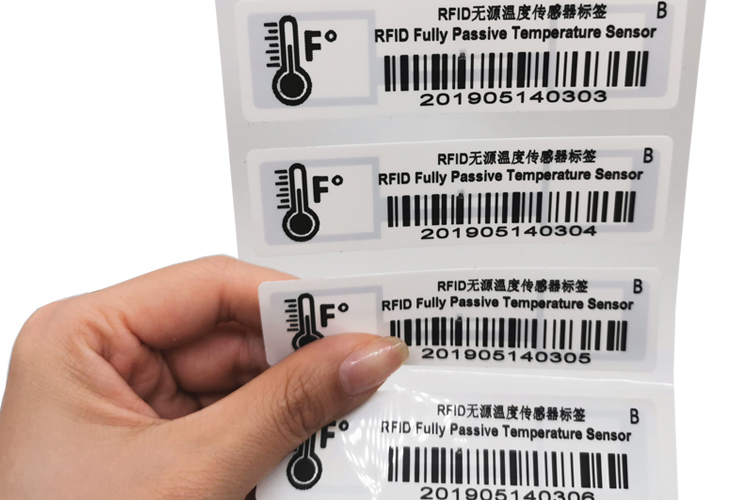
Temperature Sensor Tags
RFID temperature sensors, used in industries like steel, send data to alert users of unsafe conditions via RFID readers.
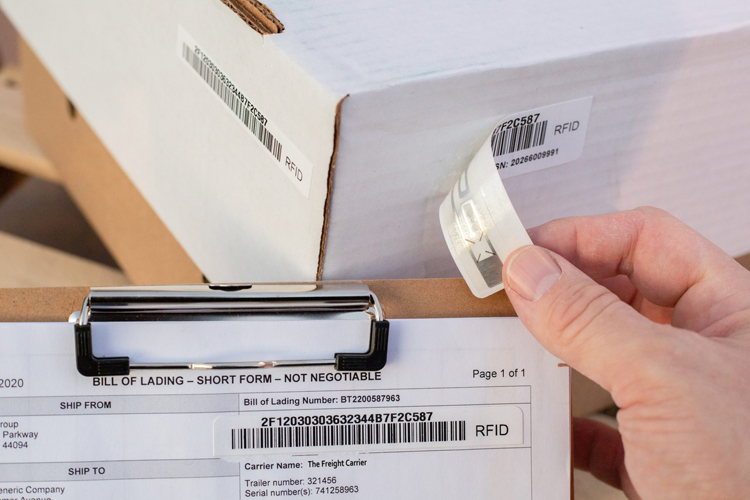
RFID Supply Chain Tags
RFID tags for supply chain visibility track products, showing when a box, pallet, or container moves from one facility to another.
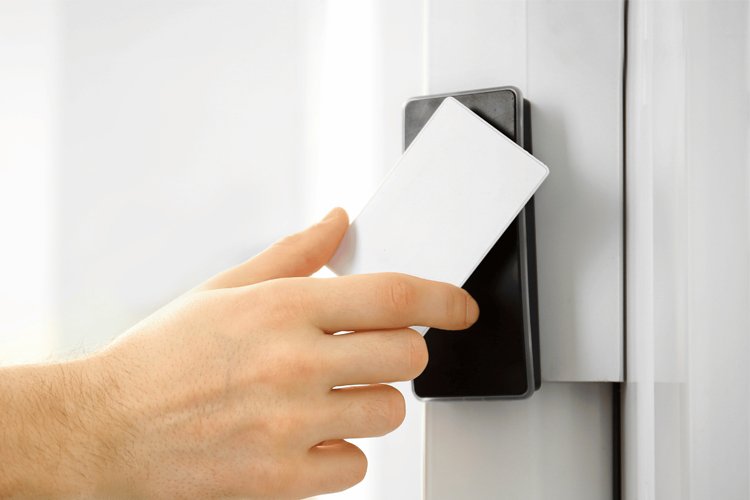
RFID Personnel Tracking
RFID strengthens access security: employee badges for workspace entry, hotel wristbands for pool access.
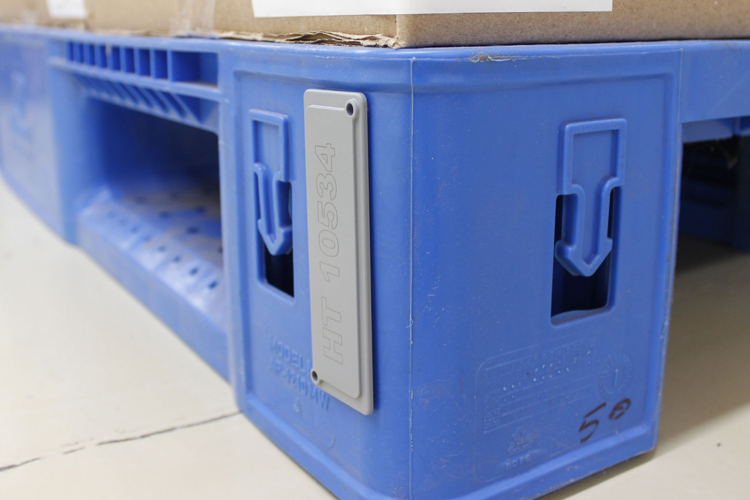
RFID Pallet Tracking Tags
Our RFID tags are ideal for tracking pallets and containers, offering durable, low-profile solutions for warehouse management.
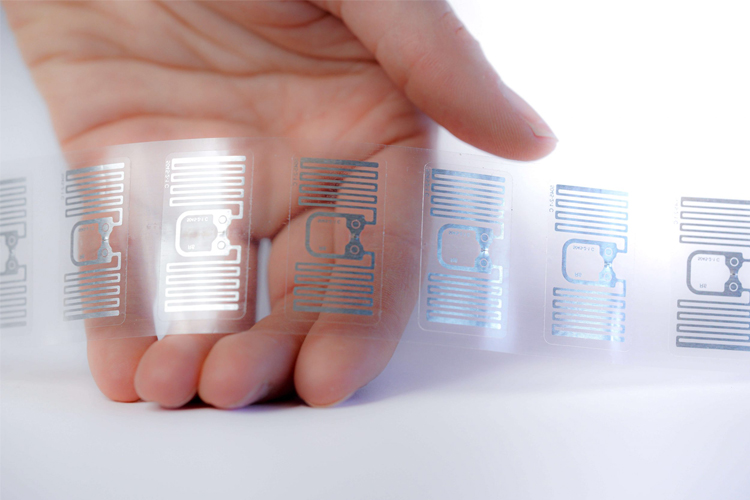
Custom RFID Tags & Labels
Our factory supplies custom RFID tags and OEM hardware solutions for unique needs when standard RFID products aren't available.
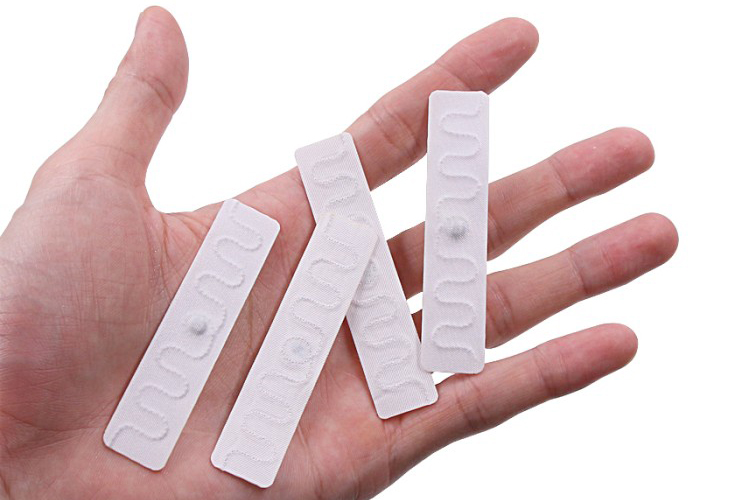
RFID Laundry Tags
Our RFID laundry tags, with a soft rubber casing, are flexible and durable, surviving 200 wash cycles and 60 bars of pressure.
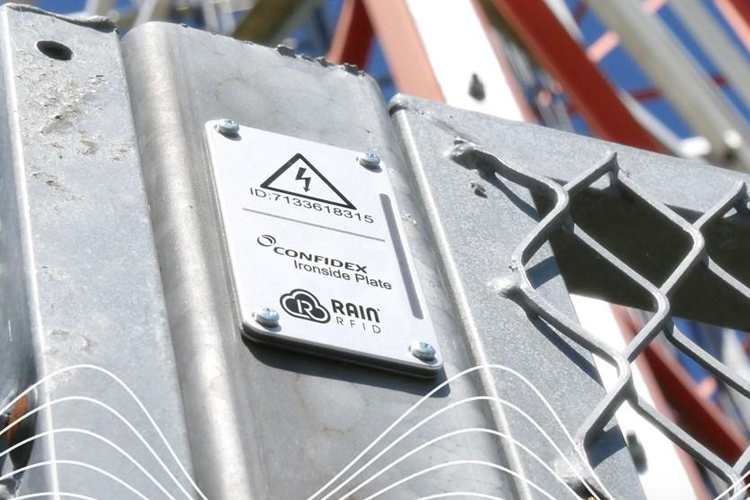
Industrial RFID Tags
We provide rugged industrial RFID tags and readers for demanding applications. Our tags withstand all weather conditions.
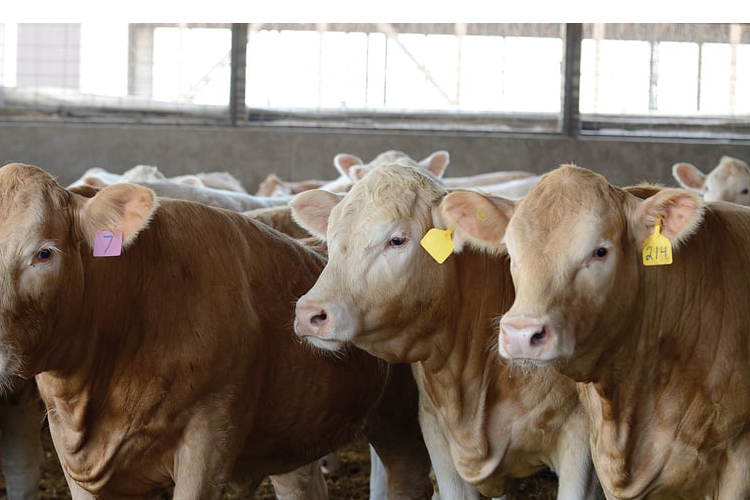
Animal RFID Tags
RFID tags track animals and pets using ear tags or injectable ampoules. Ear tags can be custom-printed and come in various colors.
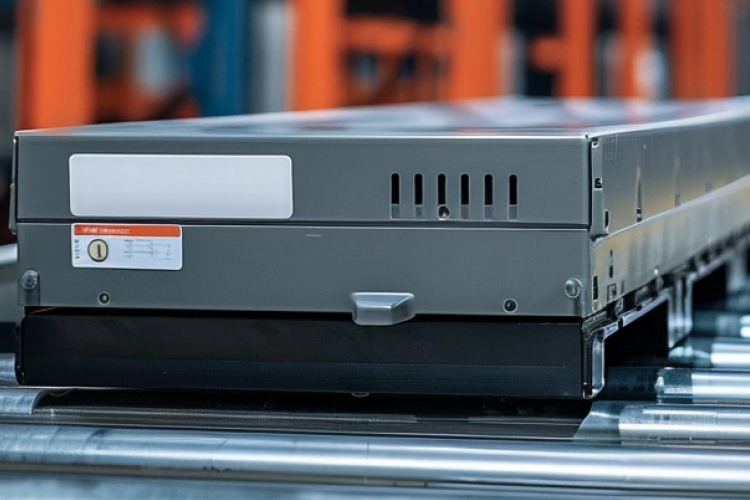
RFID Asset Tracking
RFID tags for asset tracking, like file servers, rental equipment, streamline inventory, asset management, enabling quick location, tracking.
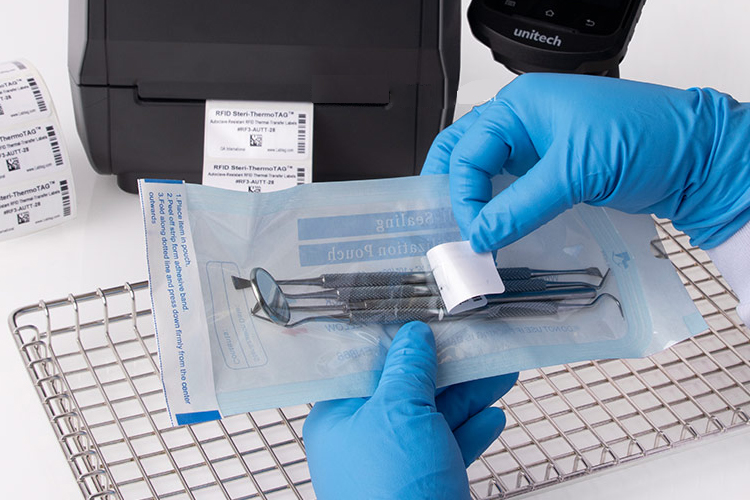
Consumables RFID Tags
RFID counterfeit tags on consumables, with a reader in the machine, verify authenticity and prevent counterfeit use.
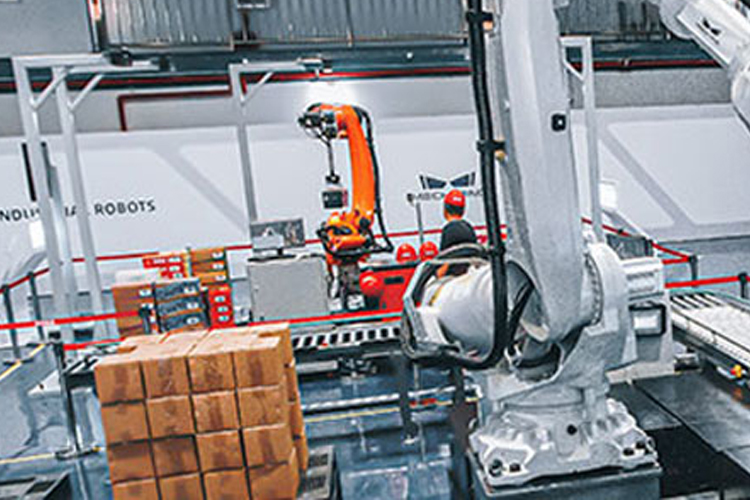
Manufacturing RFID Systems
RFID tags are used on almost all products—apparel, furniture, appliances, and cars—and are crucial for automated manufacturing systems.
Why Choose Us
As an original manufacturer with over 13 years of experience, we specialize in designing and manufacturing passive RFID (NFC, HF, and UHF) tags for applications in inventory, laundry, access control, identification, and industrial automation management.
We are a pioneering leader in RFID technology and smart product solutions. For nearly 20 years, we have been at the forefront of custom RFID and NFC technology, offering innovative solutions in every imaginable form. Our expertise lies in developing and producing RFID/NFC products that are tailored to meet your specific requirements.
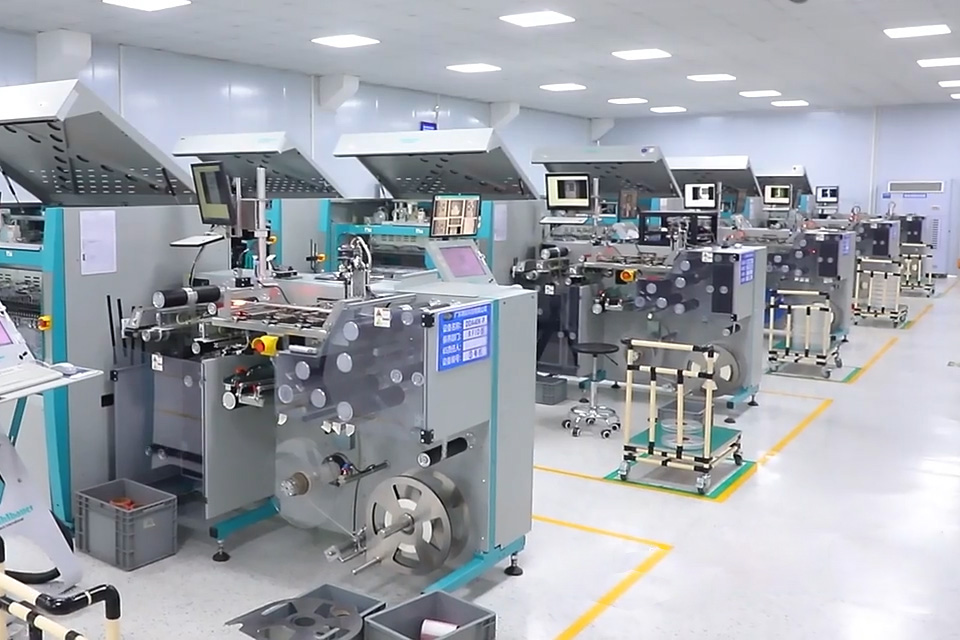
As the world’s leading RFID supplier, our factory is passionate about RFID technology. We deliver a wide range of products, including NFC tags, NFC cards, RFID/NFC labels, RFID inlays, various apparel tags, laundry tags, and RFID devices, to clients around the globe. Our RFID products are widely used in marketing campaigns, healthcare monitoring, workforce management, stock control, access control, apparel systems, laundry systems, inventory systems, IoT systems, and security applications.
Our Benefits
We provide products with competitive pricing and reliable quality, backed by an after-sales warranty. Whether you are a distributor, system integrator, or end-user, you will find the right RFID and related products here, ensuring that your company gains tangible benefits.
We have grown into a company with over 200 team members, including a production department, R&D center, sales department, technical support, and after-sales service. Understanding that time is of the essence, we can fulfill customized orders within just 5 days. Our dedicated team of over 100 factory staff ensures a stable supply and fast delivery for all our orders.
Related Products
Customize any types RFID tags from our factory to meet your own requirements.

